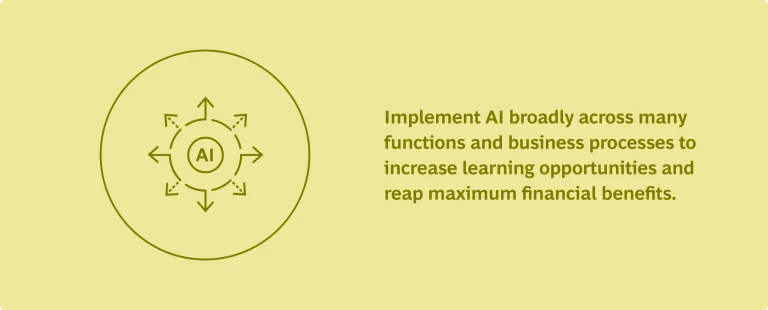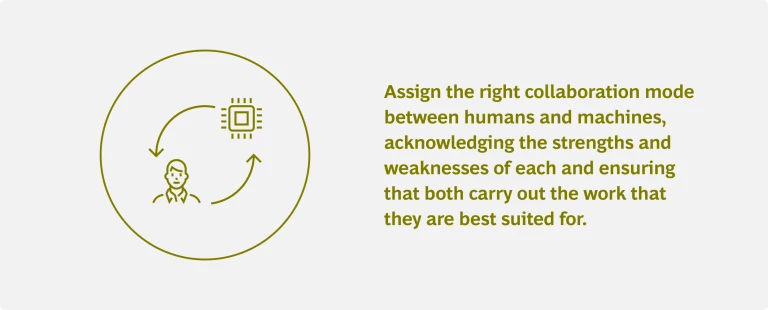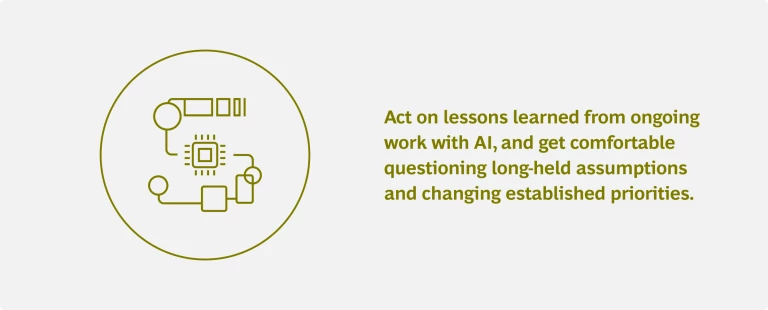Last year, a study by BCG GAMMA, the BCG Henderson Institute, and the MIT Sloan Management Review found that only 10% of businesses see significant financial returns on their AI investments . Those that succeed recognize that effective use of AI requires a carefully orchestrated symbiosis between human and machine, leading to greater organizational learning and bottom-line growth.
Our latest study—based on a global survey of more than 2,000 managers and interviews with 18 executives—builds on our prior research and suggests another, possibly more surprising benefit of AI: the vast majority of businesses that effectively implement the technology see tangible cultural gains, as measured in team morale, collaboration, role clarity, and more.
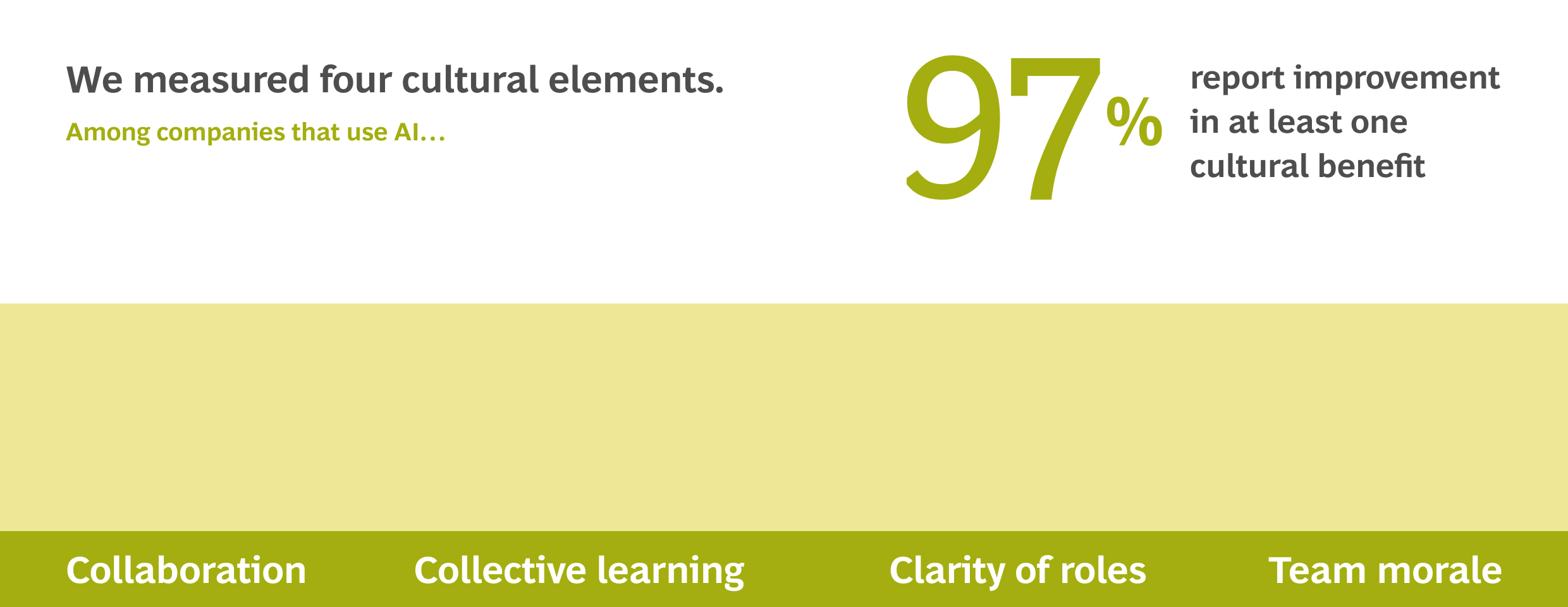
A Virtuous Cycle
AI use can lead to a virtuous cycle, but only for companies that make the most of their relationship with the technology. Deploying AI effectively—by scaling its use across the organization and structuring human–AI interactions to maximize mutual learning—improves both efficiency and decision making. This in turn inspires confidence among teams, clarifying individual roles and making it easier for teams to learn and collaborate on the human level. The outcome is greater trust and an increased willingness to double down on AI investments.
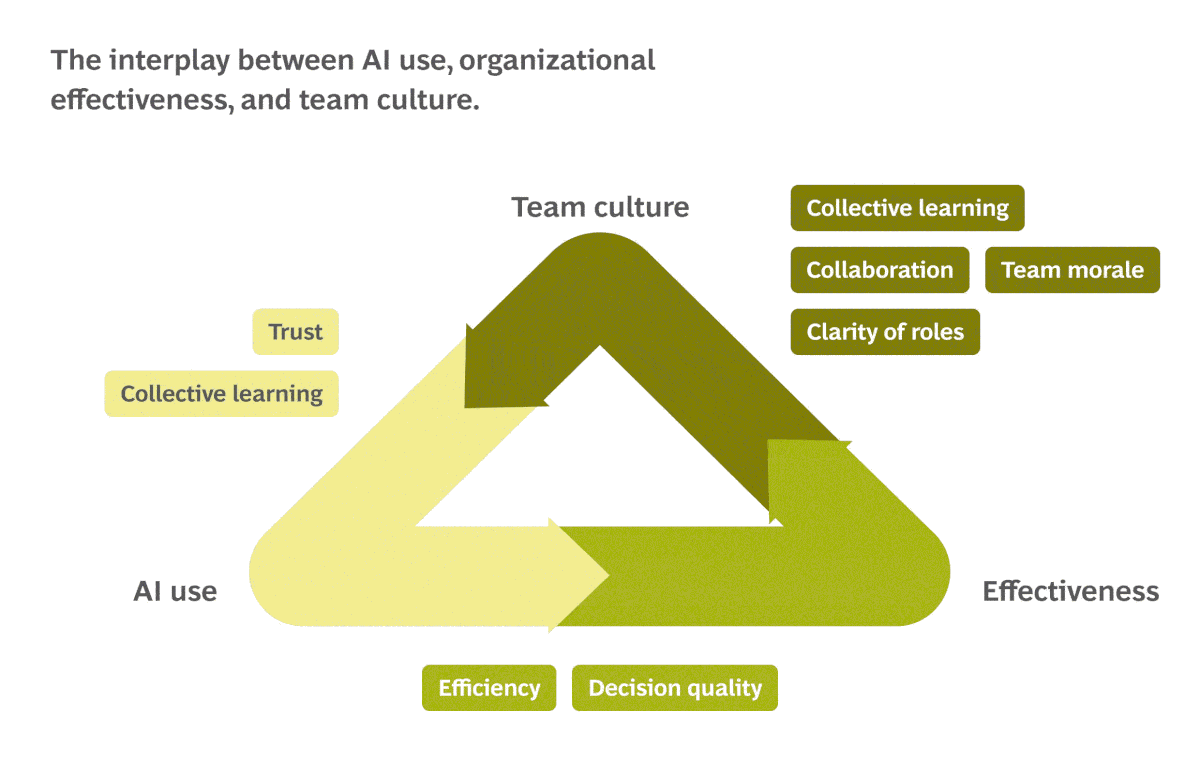
AI’s beneficial effects on culture don’t end at the team level. They can extend across the entire organization, penetrating the foundation of
business operations
, improving assumptions that drive organizational behaviors, and ensuring the pursuit of new KPIs and smarter strategic goals.
Pushing Boundaries
Realizing organization-wide progress is a major undertaking that involves reimagining business fundamentals and weaving AI into the fabric of everyday processes. Five actions are critical for companies that embark on this journey:
None of these steps are easy, and change can be a source of anxiety. Nevertheless, research is promising. Companies that extensively alter their business processes are five times as likely to see significant financial benefits as those that make few or no changes. And far from adversely affecting employee well-being, when AI leads to updated business processes, the technology tends to strengthen workplace culture and improve employee morale.
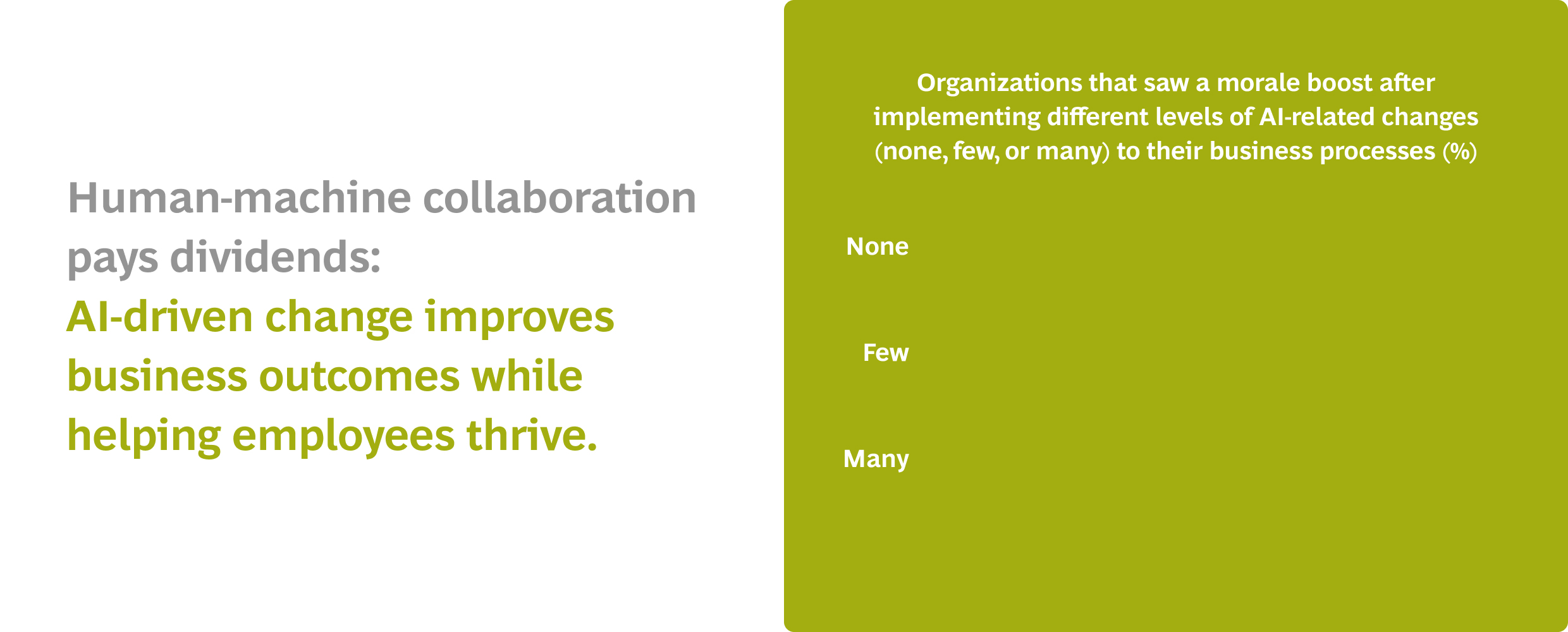
Leaders are taking notice. Employees are, too. Pernod-Ricard’s chief digital officer, Pierre-Yves Calloc’h, commented that his sales teams told him “there’s no way they are going back to the previous way of doing things. AI gives more confidence, clarity, and morale.” For companies that put in the necessary work up front, cultural gains will translate into greater resilience and competitive advantage. The organization will be stronger, more confident in the face of competition, and ready to capture opportunities in adjacent industries.

A new breed of organizations is emerging—and these players are poised to have it all. Thanks to their persistent, methodical use of AI, they will remain at the forefront of their industries and will have the opportunity to lead in new ones. Other companies still have time to join the pack, but they need to begin investing in and effectively deploying AI now.

